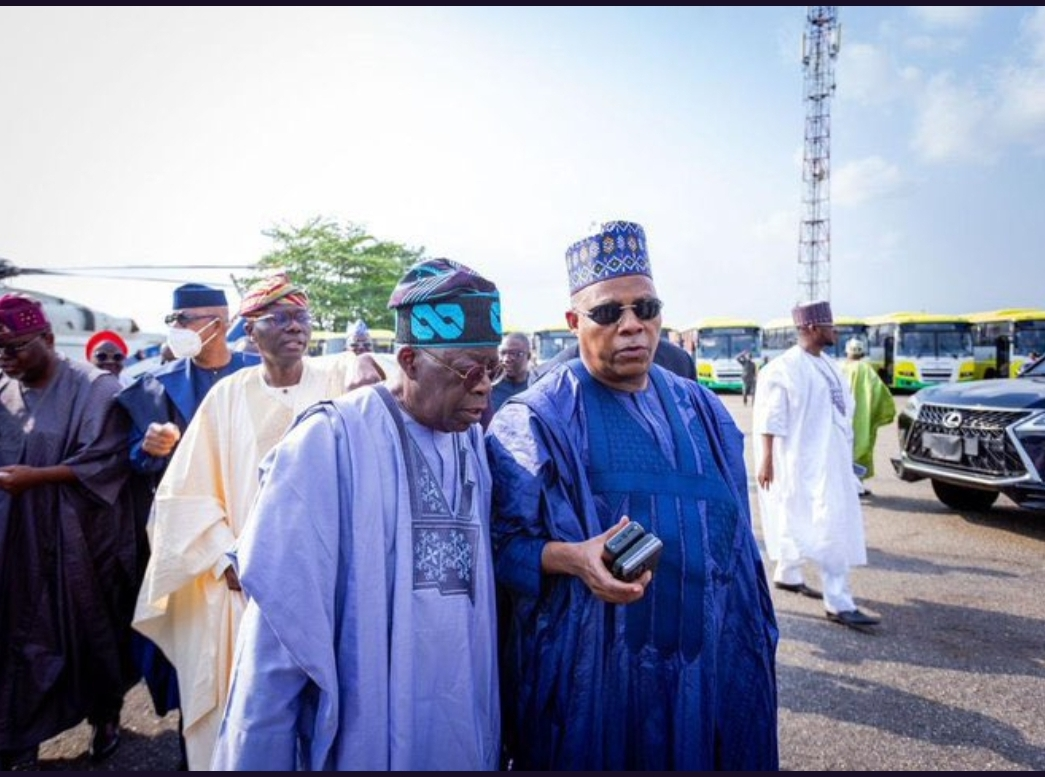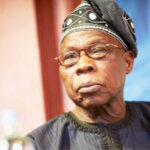Perhaps with the announcement of Senator Kashim Shettima as the running mate of APC’s presidential candidate for the 2023 elections, Asiwaju Bola Ahmed Tinubu, Nigeria’s presidential race has attained a Nash Equilibrium—where all players must stick with their current strategy to guarantee a favourable outcome at the polls. Almost all candidates have target strongholds and aren’t unaware of the consequences of refusing to appeal to their mass sentiments.
APC’s long-running strategy pivoted on the need to neutralise its biggest opponent, the PDP. When former Vice President Atiku Abubakar emerged as the presidential flag-bearer of the PDP, the risk ahead inspired a chaotic quest to find Atiku’s match, and Tinubu was aggressively marketed as the best option. But beyond the similarity of the two candidates’ political pedigree, financial muscles and vast networks of lieutenants, there’s a clash of interests in a common stronghold—the Muslim North.
For the Muslim North, Tinubu’s Muslim identity isn’t “authentic,” and it’s a familiar superiority complex that has played out even against Muslims from minority ethnic groups in the region. While the identity politics in Tinubu’s South West revolves more around Yoruba ethnicity, and understandably so because of their homogeneity, Islam is the common denominator for the Muslim North, and that implies that Atiku would’ve been favoured to take the North if Tinubu had failed to choose a Northern Muslim to checkmate him.
This democracy of marginalisation against the Northern Christians is ill-advised but none of the parties in the race is wired for a moral decision. The function of every serious political party is to stay in power by appealing to the largest voting demographics in the country, and APC has chosen the biggest identities of the larger North and the South West, which are Islam and Yoruba, respectively.
Contrary to the narrative that the 1993 Muslim-Muslim alliance of MKO Abiola and Babagana Kingibe is the precursor of the Tinubu-Shettima ticket, the Yorubas have always played down their Muslim identity in forming cross-regional political alliances. When Nuhu Ribadu was fielded as the presidential flag-bearer of Tinubu’s Action Congress of Nigeria (ACN) for the 2011 elections, his running mate was the accomplished banker and founder of Guaranty Trust Bank, Fola Adeola, a Yoruba Muslim.
Ribadu-Adeola’s Muslim-Muslim ticket, which was just eleven years ago, was marketed without emphasis on the candidates’ religious affiliation, and that’s probably because Adeola was seen as representing the Yorubas on the ticket and Ribadu the Muslim North. The pair was seen as the alternative to the then ruling party even by the urban youth demographic, with some even returning from their stations abroad to volunteer as foot-soldiers of the ticket.
That a Muslim-Muslim ticket is a taboo today isn’t a misguided outrage, but the leading opposition, unfortunately, has no moral power to animate such sentiments. PDP settled for a Northern Muslim candidate, after two terms of a Northern Muslim president, for the same reason the APC opted for a Muslim-Muslim ticket—for electoral victory. None of the tickets is based on a moral projection of what’s ideal, but a fixation on the practicality of securing the highest votes to take or retake power next year.
This is why Peter Obi’s emergence has been a blessing in this clamouring for a more representational democracy. Mr. Obi has not only inspired political participation in a previously apathetic sub-region and ethnic group, but he’s also repositioning the Igbo as a reliable political bloc for electoral partnerships. The Igbos, who were a formidable bloc in the First and Second Republics, were strangely lukewarm in the Fourth Republic and it seems like a classic case of self-sabotage.
In the First Republic, the Igbo and Muslim North were allies against the Yoruba. The Muslim North-controlled Northern People’s Congress (NPC) and the Eastern Region’s National Council of Nigeria and the Cameroons (NCNC) teamed up against Obafemi Awolowo-led Action Group (AG) from the Western Region, with NPC’s Alhaji Abubakar Tafawa Balewa emerging as Prime Minister. When Nigeria became a republic in 1963, NCNC’s Nnamdi Azikiwe became the president. The AG, however, functioned as a frustrated opposition, and following the 1962 crisis in the Western House of Assembly, the coalition government of the NPC and NCNC took over control of the Western Region.
When Nigeria returned to democracy and adopted the American-style presidential system in 1979, the Muslim North and the Igbo came together again to fly the historic Shagari-Ekwueme ticket under the NPN banner. With the Muslim North’s votes feared taken by Shagari, Chief Obafemi Awolowo also settled for an Igbo Christian, Philip Umeadi, as running mate to fly the UPN ticket. Nnamdi Azikiwe of the NPP took a Northern Christian, Ishaya Audu, as running mate to appeal, especially, to the Northern Christians. Despite the reported electoral irregularities, it was Nigeria’s most closely-contested election so far, with NPN polling 5,688,857 votes (33.77%) to emerge as the winner. UPN and NPP polled 4,916,551 votes (29.18%) and 2,822,523 votes (16.75%), respectively.
Alliances with the Igbos faltered in the Fourth Republic because the experiments between the Muslim North and the South East were largely wrecked by the latter’s apathy. Buhari attempted the experiments twice with Chuba Okadigbo in 2003 and Edwin Ume-Ezeoke in 2007 and lost. Atiku too attempted the experiment with Peter Obi in 2019 and lost. Both Northern Muslim politicians had to seek electoral partnerships elsewhere. Buhari with the South-West in the failed 2011 elections, and the victorious 2015 and 2019. The outcome of Atiku’s experiment with the South South for the forthcoming presidential elections will be known by, at least, March 2023.
Political parties are mere structures designed to take or maintain a hold on power, and none of the candidates in the race to Aso Rock will risk sabotaging their political stronghold to appeal to risky moral expectations. APC knows their strengths are the Muslim North and the South West, PDP is convinced that appealing to the Muslim North and the South-South is their best strategy. Labour Party’s Peter Obi is also aware its stronghold remains the South East because his Northern running mate, Dr. Yusuf Datti Baba-Ahmed is a lightweight around political veterans like Atiku, Shettima or Rabiu Kwankwaso. Mr. Obi would’ve made an excellent pair with NNPP’s Kwankwaso if their egos had allowed.
In this game of numbers, the tickets of the leading parties, especially APC, PDP, LP, and the undecided NNPP, are designed to appeal to the parties’ strongholds based on the nation’s voting patterns, and deviating is a risk none is willing to take. Whether fair or pragmatic, the outcomes of these political experiments, especially with Obi waking the South East up from its long slumber, will influence the elections after 2023. Once the Igbos, who ought to be one of the nation’s three largest voting blocs, re-assert their electoral might, we may get out of this moral stalemate.
Editor’s Note: Beyond the Surface will henceforth be appearing on this space every Wednesday.

 Join Daily Trust WhatsApp Community For Quick Access To News and Happenings Around You.
Join Daily Trust WhatsApp Community For Quick Access To News and Happenings Around You.
